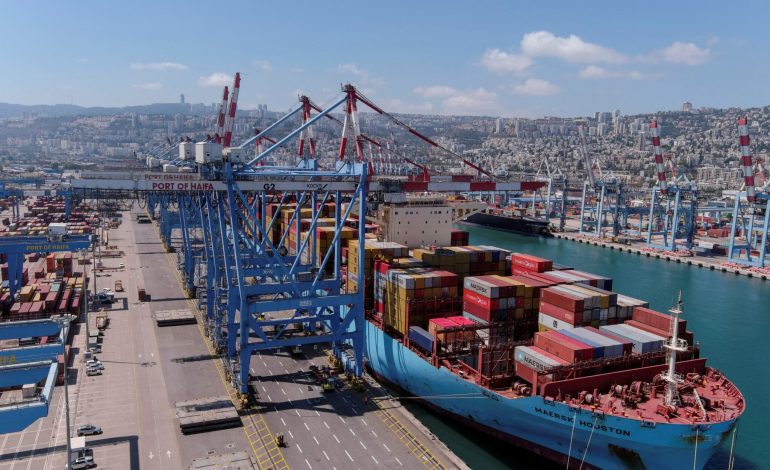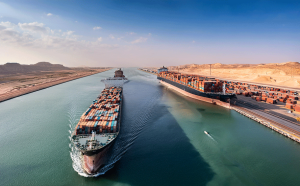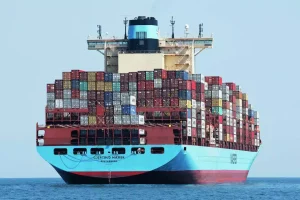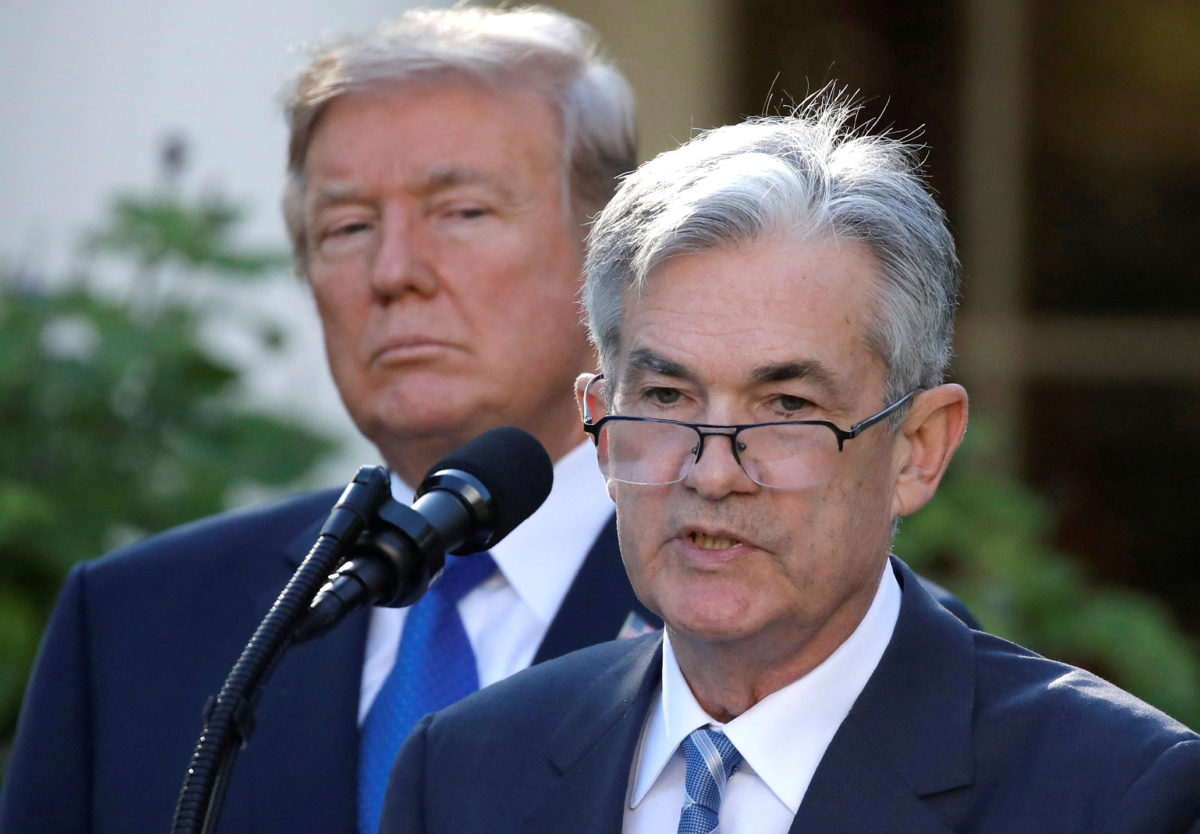EXCLUSIVE: Economic Repercussions of the Houthi Blockade on Red Sea Shipping

In May 2025, Yemen’s Houthi movement—an Iran-aligned armed group—declared a maritime blockade of Israel’s port of Haifa. The announcement warned that “all companies with ships present in or heading to this port are hereby notified… [they] are included in the list of targets.” Though framed as a gesture of solidarity with Palestinians amid the Gaza conflict, the blockade’s impact has extended far beyond Israel, reverberating across global trade networks and regional economies.
Originating as a northern Yemeni insurgency, the Houthis have fought the Yemeni government and its Saudi-led allies since the early 2010s. By late 2023, they escalated their regional strategy by targeting commercial shipping in the Red Sea with drones and missiles. The May 2025 blockade of Haifa marked a significant escalation, directly threatening one of the world’s most critical maritime corridors—connecting the Mediterranean Sea (via the Suez Canal) to Asia.
The Red Sea–Suez Canal route is a cornerstone of global commerce. In response to the Houthi threat, many vessels have been rerouted around the Cape of Good Hope, adding thousands of nautical miles to transits. Dr. Ragui Assaad, Professor of Planning and Public Affairs at the Humphrey School of Public Affairs at the University of Minnesota, notes:
“[This change] has resulted in a plummeting of shipping traffic through the Suez Canal, resulting in turn in the dramatic decline of revenues from Suez Canal tolls collected by the Egyptian government from over $10 billion per year in 2023 to $4 billion per year in 2024, a 60 % drop. Suez Canal tolls represent a major source of foreign exchange earnings for Egypt. At their height, in 2023, they represented 11% of Egyptian foreign exchange earnings, meaning that the recent losses alone represent 7% of foreign exchange earnings. This had a major negative effect on the Egyptian economy, as Egypt is highly indebted and has to dedicate a large part of its foreign exchange receipts to service its external debt. Initially this has put severe downward pressure on the value of the Egyptian currency and, in turn, pushed up inflation. Fortunately, Egypt has recently managed to attract substantial foreign investments to stabilize its foreign exchange, and inflation is now trending downward. This is only a temporary fix, however, and the resumption of Suez Canal traffic to its normal level is a high priority for the Egyptian government.”
Major Mediterranean transshipment hubs—particularly in Greece, Italy, and Spain—have seen shipping volumes plummet as Asia-Europe traffic bypasses the Suez Canal. Dr. Jean-Paul Rodrigue, Department of Maritime Business Administration Professor and Hagler Institute for Advanced Study Distinguished Fellow at Texas A&M University, explains:

“The traffic from Asia used to cross through the Mediterranean. But now it’s shifting around, yet it’s still going to Europe. That created changes in the shipping network structure, but it’s been adapted, and, impressively, it has been tolerated.”
Although the blockade does not completely block maritime access to Israel, it imposes significant logistical complications. Dr. Rodrigue adds:
“There’s not that much trade involving Israel. It’s a small country. [The blockade] does not prevent cargo from reaching Israel, but it delays it and ties up capacity. Some ships are crossing, but under escort, and there are all sorts of side deals. I would suspect that the Chinese have negotiated with the Houthis to allow some of their cargo to pass by uninterrupted, and again they will deny it, obviously, but we know what’s happening behind the scenes. There’s a whole dark fleet with the Russians involved.”
Since 2024, no US-flagged ships have entered the Red Sea due to the security threat, with 75% rerouting via Africa. The detour adds 10–14 days and significantly increases operating costs. Dr. Ellen R. Wald, President of Transversal Consulting and Senior Fellow at the Atlantic Council’s Global Energy Center, states:
“75% of US-flagged ships are diverted around Africa to avoid using the Suez Canal. This means longer transit times and increased fuel and labor costs. In addition, the Houthi threat has raised insurance costs for ships worldwide. The highest rates are for ships transiting the Suez Canal, with rates now reaching as high as 2% of a value for vessels that transit the Red Sea.”

Ironically, container carriers have been among the few to mitigate losses. During the post-pandemic boom, excess vessel capacity flooded the market just as freight rates were collapsing. The blockade-induced rerouting absorbed surplus ships, enabling carriers to maintain higher rates and profitability. Dr. Rodrigue emphasizes:
“You don’t see them complaining too much because it allows them to use this capacity, maintain their rate, and maintain a level of profitability that under a normal circumstance would have been gone.”
In this way, carriers have been able to use extended routes to their advantage—while cargo owners shoulder higher bills and longer transit times.
Winners, Losers, and Strategic Realignments
Losers:
- Egypt: A $6 billion toll revenue loss has compounded Egypt’s economic fragility. Dr. Eckart Woertz, GIGA Institute for Middle East Studies Director and Professor for Contemporary History and Politics of the Middle East at the University of Hamburg, notes:
“Cash-strapped Egypt’s financial position is affected negatively as its income from transit fees of the Suez Canal has declined.”
- Southern Europe: Ports like Piraeus and Valencia face declining volumes; importers struggle with delivery delays and increased costs.
- European Energy Importers: Extended shipping routes from the Gulf raise fuel and insurance costs, affecting consumer prices.

Temporary Winners:
- Container Carriers: Diversions helped them avoid a freight-rate collapse and kept vessels profitable.
- Iran: The Houthis’ success serves Tehran’s strategic aims. Dr. Rodrigue remarks:
“The role of Iran is to disrupt and damage the West as much as possible and particularly Israel… Iran will constantly push this because they saw that the game works. It damages the West. It damages ‘the Great Satan’.”
Limited or Neutral Beneficiaries:
- Russia:
“This is not a reliable trade route because it’s closed most of the year. It’s used a bit more these days, but it’s simply something that is open for a few months under very strict regulation. You have to be escorted by an icebreaker, and it’s pretty expensive. There are some shipping lines that give it a try, but most of the major shipping lines have not committed, and they say they won’t. So it’s not a serious option. From a Russian perspective, there’s no geopolitical interest as far as opening the Arctic. They may be seeing it as a disruption of western trade lines.”
- China:
“China is more of a neutral observer. It tries to deal with the situation. They are annoyed by this, but they’re going to adapt and tolerate and play the game a little bit, but it’s not in their strategic interest because they have strong ties with Europe in terms of trade.”
The blockade underscores the challenges posed by asymmetric warfare and the West’s limited response. Dr. Rodrigue notes:

“We are not very well adapted to dealing with this new form of warfare. It’s like the war in Ukraine… Drones cost a little to nothing, and the countermeasures are excessively expensive… It started with a surveillance drone dropping a bomb from time to time. But now it’s tiny little things that fly around. Now you have these devices, and they can be mass-produced at a relatively low cost. To shoot down something that costs $100,000, you have to have a $1,000,000 countermeasure.”
Despite naval escorts like the EU’s Operation Aspides and airstrikes by the US and UK, Houthi capabilities remain intact—sustained by Iranian weapons, intelligence, and training.
For Israel, the blockade complicates logistics but has not halted core operations. For Egypt and Southern Europe, the economic damage is far more acute. Until a durable ceasefire or political resolution emerges, the blockade will remain a persistent stressor on global supply chains.
The Houthis have turned a key global trade corridor into a tool of geopolitical leverage. Until the international community unites on an effective strategy—diplomatic or military—the Red Sea will remain a high-risk zone, and the world economy will continue to bear the cost.
Read more about the legal side of the Houthi blockade here.









The latest news in your social feeds
Subscribe to our social media platforms to stay tuned